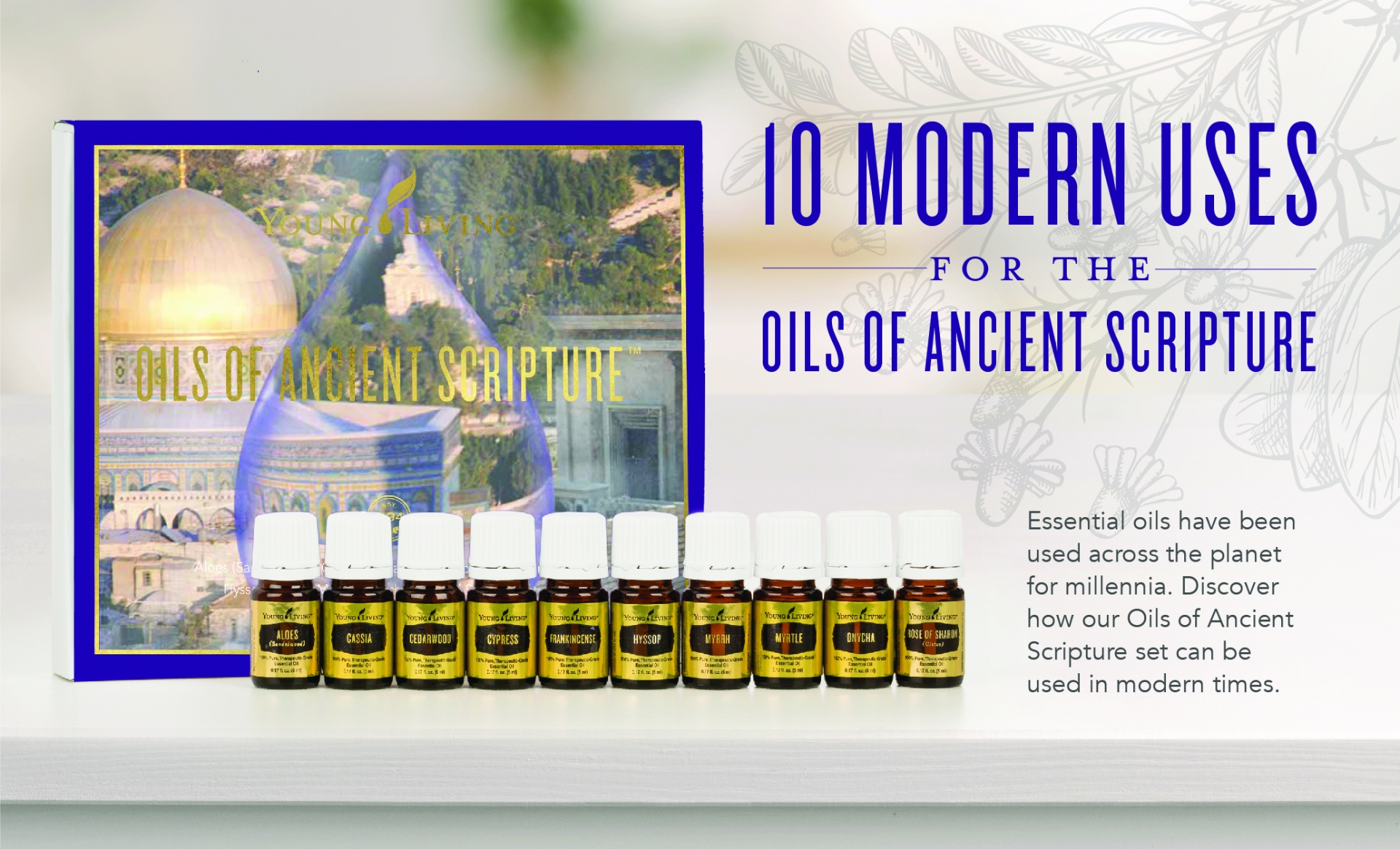VIDEOS Frankincense: Stewardship of Quality
Its fresh, herbaceous, slightly evergreen aroma is refreshing and restoresfeelingsof security and stability. It is used to support the circulatory system.* Cypress is also beneficial for oily or troubled skin. Some Bible scholarsbelievethat cypress may be the gopher wood used to build Noahs Ark.
Taggedcassia essential oilcedarwood essential oilcistus essential oilcypress essential oilfrankincense essential oilhyssop essential oilmyrrh essential oilmyrtle essential oiloils of ancient scriptureonycha essential oilroyal hawaiian sandalwood essential oil
Refer to individual products for specific usage and ingredients.
Royal Hawaiian Sandalwood Essential Oil
Audio: Frankincense, More Precious Than Gold
Differences between Frankincense Carteri, Frereana, Sacra
Who is this coming out the wilderness like pillars of smoke, performed with myrrh and frankincense?(Song of Solomon 3:6)
DIY: Essential Oil Recipe to Help Protect Skin from Sun during Summer
Audio: Highly Valued Benefits of Cinnamon Bark and Myrrh
Cassia is one of the ingredients in Moses Holy Anointing Oil and it was burned daily in the temple. Two of the oldest known spices in the world arecinnamonand cassia. Cassia is similar to cinnamon, but has a more pungent, less delicate aroma. It is known for its cleansing properties.*
Audio: Frankincense and Sacred Frankincense, Gifts of Antiquity
10 Modern Uses for the Oils of Ancient Scripture [Infographic]
Myrrh is mentioned 156 times in the Bible, more than any other oil. Myrrh has a rich, smoky, balsamic aroma that is purifying, restorative, revitalizing, and uplifting. It is a helpful aid to meditation, having one of the highest levels of sesquiterpenes available. It is used to support healthy skin.*
Recipe: Goat Cheese, Pea, and Herb Frittata
Frankincense is stimulating and elevating to the mind. Useful for visualizing, improving ones spiritual connection.* Frankincense is considered the holy anointing oil in the Middle East, where it has been used in religious ceremonies for thousands of years. It is the second most frequently mentioned oil of the Bible.
Cedarwood has a warm, balsamic, woody aroma. It was an integral part of two Biblicalpurificationrituals. Smelling cedarwood helps clear the mind of clutter and clarify thinking.* Cedarwood is recognized historically for its calming and purifying properties.
And when they had opened their treasures, they presented gifts to Him; gold, frankincense, and myrrh.(Matthew 2:11)
TheOils of Ancient Scripture™ set contains 10 oils from the most significant plants, botanicals, materials, and resins in the Bible. This kit is designed to help you savor and enjoy the beautiful aromas and intriguing histories of these precious, pure essential oils.
Your email address will not be published.Required fields are marked*
Recipe: Strawberry Chia Cups with Balsamic Black Pepper Sauce
Grading Frankincense (Carteri Frereana) Gums in Somaliland
Rose of Sharon (also known as Cistus) comes from a rose that has a soft, honey-like scent. Calming and uplifting, it is helpful for meditating and counseling. Traditionally, cistus has been used to support the immune system.*
Video: Eucalyptus and Child Safety Pharmacist Lindsey Elmore
All they garments smell of myrrh, and aloes, and cassia, out of the ivory palaces, by whereby they have made thee glad.(Psalm 45:8)
He cuts down cedars for himself, And takes the cypress and the oak; He secures it for himself among the trees of the forest.(Isaiah 44:14)

And he shall take, to cleanse the house, two birds, cedarwood, scarlet, andhyssop.(Leviticus 14:49)
Infographic: 10 Modern Uses for the Oils of Ancient Scripture
Get these products for the same price as the owner of this website
Ancient cultures such as the Egyptians, Persians, Romans, and Israelites have all been documented as proponents of essential oils, but did you know that we can also trace certain essential oils to the Bible itself? Our Oils of Ancient Scripture set contains 10 of these oils, each with modern benefits that you can use in
And instead of the brier shall come up the myrtle tree; And it shall be to the LORD for a name, for an everlasting sign that shall not be cut off.(Isaiah 55:13)
And the LORD said to Moses: Take sweet spices, stacte and onycha andgalbanum, and pure frankincense with these sweet spices(Exodus 30:34)
Myrtle has a clear fresh, herbaceous scent, similar to eucalyptus. Supportive of the respiratory system, skin, and hair, it has been researched for its effects of glandular imbalances and its soothing effects when inhaled.*
* This statement has not been evaluated by the Food and Drug Administration. This product is not intended to diagnose, treat, cure or prevent disease.
I am the rose of Sharon, and the lily of the valley(Song of Solomon 2:1)
VIDEOS Sacred Frankincense: Hands-on Experience with the Tree
Mountain Savory Vitality Essential Oil
Hyssop has a fresh, woody scent that is slightly sweet. Hyssop was used in purification rituals and is noted for its purifying properties. It is also known for supporting the respiratory system. It can be used to uplift the spirits.*
And there came also Nicodemus, which at first came to Jesus by night, and brought a mixture ofmyrrhand aloes, about a hundred pound weight.(John 19:39)
Onycha was used traditionally in the holy incense. It has a wonderful odor of vanilla because it contains vanillin aldehyde, also found in the vanilla plant. It is known for its ability to heal wounds. It also helps supports the digestive system and uplift the spirits.*
Audio: The Rejuvenating Effects of Raindrop Technique
Aloes (also known assandalwood) has a rich, sweet, warm, wood aroma. Used traditionally as incense in religious ceremonies and for meditation, it is uplifting, relaxing and valued in skin care. Sandalwood is high in sesquiterpenes and has been studied for its ability to oxygenate the brain.*
Purge me with hyssop, and I shall be clean; Wash me, and I shall be whiter than snow.(Psalm 51:7)
Oils of Ancient Scripture Kitcontents
VIDEO: Frankincense Fact Fallacy